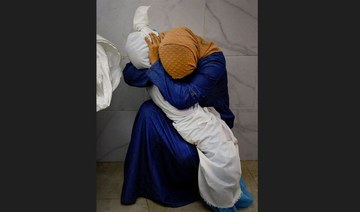NEW YORK: Former President Donald Trump said Monday that he has no intention of rejoining Twitter even if his account is reinstated following Elon Musk’s agreement to buy the social media giant for roughly $44 billion.
Trump told Fox News that he will instead focus on his own platform, Truth Social, which has been mired in problems since its launch earlier this year.
“I am not going on Twitter. I am going to stay on Truth,” Trump was quoted telling the network. “I hope Elon buys Twitter because he’ll make improvements to it and he is a good man, but I am going to be staying on Truth.”
Trump was barred from major social media platforms after the deadly Jan. 6 insurrection, with Twitter citing the “risk of further incitement of violence.” The decision denied him the megaphone he had used to generate media attention and speak directly to his followers, which had been integral to his political rise.
At the time, the former president had roughly 89 million followers on Twitter alone.
Musk, the world’s wealthiest person and a self-described free-speech absolutist, had said he wanted to buy and privatize Twitter because he believed it wasn’t living up to its potential as a free speech platform. It raised questions about whether he might reinstate Trump’s account as the former president lays the groundwork for another White House run in 2024.
Trump has continued to spread lies about his 2020 election defeat in speeches and statements since leaving office, and it is unclear how Musk would approach those statements if Trump were ever to return to the site.
In recent weeks, Musk has voiced a number of proposed changes for the company, including relaxing its content restrictions, and said he would be “very reluctant” to delete content and cautious of permanent bans.
After being kicked off social media platforms, Trump launched his own social media app and sued Twitter, Facebook and Google’s YouTube, claiming he and other conservatives had been wrongfully censored, even though posts by conservative commentators are routinely the most widely shared.
On Monday, he said he welcomed Musk’s purchase and told Fox News he didn’t see Twitter as his own product’s competition.
“Truth Social will be a voice for me,” he said. “And that’s something nobody else can get.”
At a rally in Ohio on Saturday, Trump also urged his supporters to join him on Truth Social.
“Go out and sign up now,” he told them. “Have a lot of fun.”
Trump says he has no plans to rejoin Twitter after Musk deal
https://arab.news/nm2gv
Trump says he has no plans to rejoin Twitter after Musk deal
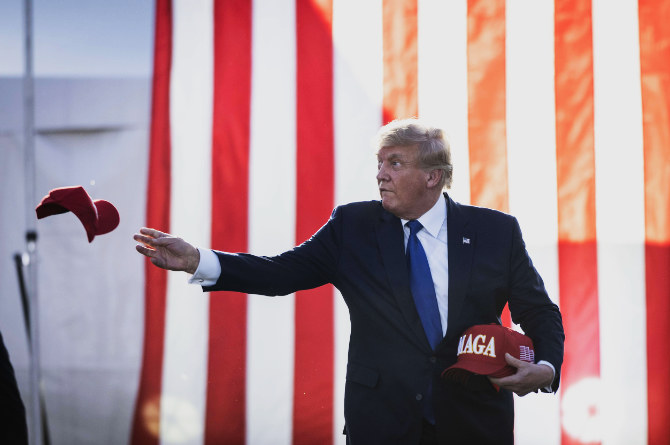
US committee releases sealed Brazil court orders to Musk’s X, shedding light on account suspensions
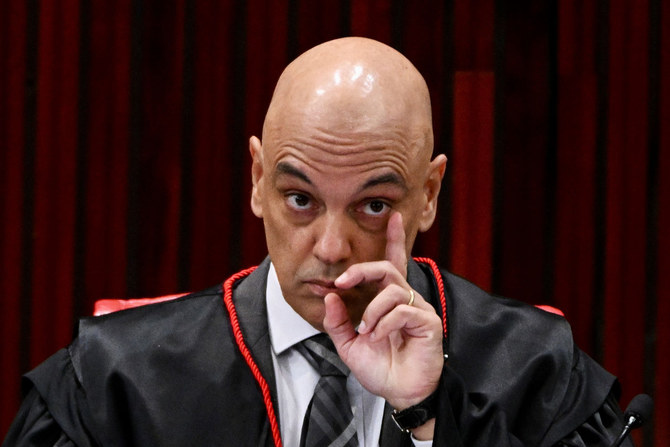
RIO DE JANEIRO: A US congressional committee released confidential Brazilian court orders to suspend accounts on the social media platform X, offering a glimpse into decisions that have spurred complaints of alleged censorship from the company and its billionaire owner Elon Musk.
The Republican-controlled House Judiciary Committee late Wednesday published a staff report disclosing dozens of decisions by Brazilian Supreme Court Justice Alexandre de Moraes ordering X to suspend or remove around 150 user profiles from its platform in recent years.
The 541-page report is the product of committee subpoenas directed at X. In his orders, de Moraes had prohibited X from making them public.
“To comply with its obligations under US law, X Corp. has responded to the Committee,” the company said in a statement on X on April 15.
The disclosure comes amid a battle Musk has waged against de Moraes.
Musk, a self-proclaimed free-speech absolutist, had vowed to publish de Moraes’ orders, which he equated to censorship. His crusade has been cheered on by supporters of far-right former President Jair Bolsonaro, who allege they are being targeted by political persecution, and have found common cause with their ideological allies in the US
De Moraes has overseen a five-year probe of so-called “digital militias,” who allegedly spread defamatory fake news and threats to Supreme Court justices. The investigation expanded to include those inciting demonstrations across the country, seeking to overturn Bolsonaro’s 2022 election loss. Those protests culminated in the Jan. 8 uprising in Brazil’s capital, with Bolsonaro supporters storming government buildings, including the Supreme Court, in an attempt to oust President Luiz Inácio Lula da Silva from office.
De Moraes’ critics claim he has abused his powers and shouldn’t be allowed to unilaterally ban social media accounts, including those of democratically elected legislators. But most legal experts see his brash tactics as legally sound and furthermore justified by extraordinary circumstances of democracy imperiled. They note his decisions have been either upheld by his fellow justices or gone unchallenged.
The secret orders disclosed by the congressional committee had been issued both by Brazil’s Supreme Court and its top electoral court, over which de Moraes currently presides.
The press office of the Supreme Court declined to comment on the potential ramifications of their release when contacted by The Associated Press.
“Musk is indeed a very innovative businessman; he innovated with electric cars, he innovated with rockets and now he invented a new form of non-compliance of a court order, through an intermediary,” said Carlos Affonso, director of the nonprofit Institute of Technology and Society. “He said he would reveal the documents and he found someone to do this for him.”
Affonso, also a professor of civil rights at the State University of Rio de Janeiro, said that the orders are legal but do merit debate, given users were not informed why their accounts were suspended and whether the action was taken by the platform or at the behest of a court. The orders to X included in the report rarely provide justification, either.
The Supreme Court’s press office said in a statement Thursday afternoon that the orders do not contain justifications, but said the company and people with suspended accounts can gain access by requesting the decisions from the court.
While Musk has repeatedly decried de Moraes’ orders as suppressing “free speech” principles and amounting to “aggressive censorship,” the company under his ownership has bowed to government requests from around the world.
Last year, for instance, X blocked posts critical of Turkish President Recep Tayyip Erdogan and, in February, it blocked accounts and posts in India at the behest of the country’s government.
“The Indian government has issued executive orders requiring X to act on specific accounts and posts, subject to potential penalties including significant fines and imprisonment,” X’s global affairs account posted on Feb. 21. “In compliance with the orders, we will withhold these accounts and posts in India alone; however, we disagree with these actions and maintain that freedom of expression should extend to these posts.”
Brazil is a key market for X and other social media platforms. About 40 million Brazilians, or about 18 percent of the population, access X at least once per month, according to market research group eMarketer.
X has followed suspension orders under threat of hefty fines. De Moraes typically required compliance within two hours, and established a daily fine of 100,000-reais ($20,000) for noncompliance.
It isn’t clear whether the 150 suspended accounts represent the entirety of those de Moraes ordered suspended. Until the committee report, it wasn’t known whether the total was a handful, a few dozen or more. Some of the suspended accounts in the report have since been reactivated.
On April 6, Musk took to X to challenge de Moraes, questioning why he was “demanding so much censorship in Brazil”. The following day, the tech mogul said he would cease to comply with court orders to block accounts — and that de Moraes should either resign or be impeached. Predicting that X could be shut down in Brazil, he instructed Brazilians to use a VPN to retain their access.
De Moraes swiftly included Musk in the ongoing investigation of digital militias, and launched a separate investigation into whether Musk engaged in obstruction, criminal organization and incitement. On April 13, X’s legal representative in Brazil wrote to de Moraes that it will comply with all court orders, according to the letter, seen by the AP.
Affonso said the committee’s release of de Moraes’ orders were aimed less at Brazil than at the administration of US President Joe Biden. The report cites Brazil “as a stark warning to Americans about the threats posed by government censorship here at home.”
Terms like “censorship” and “free speech” have turned into political rallying cries for US conservatives since at least the 2016 presidential election, frustrated at seeing right-leaning commentators and high-profile Republican officials booted off Facebook and Twitter in its pre-Musk version for violating rules.
“The reason why the far-right needs him (Musk) is because they need a platform, they need a place to promote themselves. And Elon Musk needs far-right politicians because they will keep his platform protected from regulations,” said David Nemer, a Brazil native and University of Virginia professor who studies social media.
In the US, free speech is a constitutional right that’s much more permissive than in other countries, including Brazil. Still, the report’s release seemed to invigorate Bolsonaro and his far-right supporters.
Late Wednesday, soon after the court orders were released, Bolsonaro capped off a speech at a public event by calling for a round of applause for Musk.
His audience eagerly complied.
Several Google employees fired, arrested after ‘Googlers Against Genocide’ sit-in protests
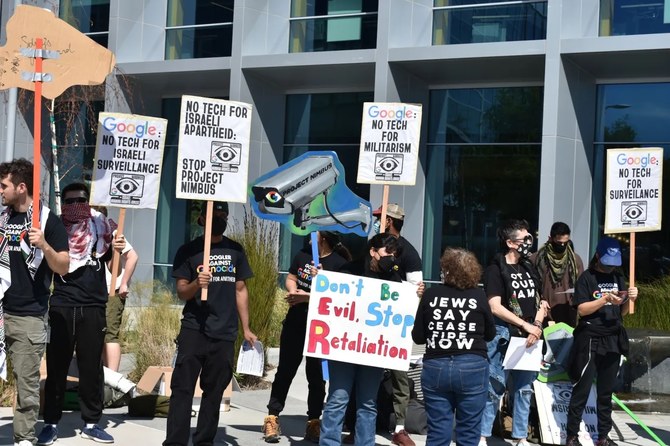
- Outrage over tech giant’s $1.2bn Project Nimbus contract with the Israeli military
- Affiliated group No Tech for Apartheid condemns decision as a flagrant act of retaliation
LONDON: A number of Google employees have lost their jobs and nine have been arrested following protests against the tech giant’s $1.2bn Project Nimbus contract with the Israeli military.
The demonstrations, organized by Googlers Against Genocide and associated with the group No Tech for Apartheid, involved a 10-hour sit-in at Google’s sites in New York City and Sunnyvale, California.
The protesters occupied the office of Google Cloud CEO Thomas Kurian in California, prompting police intervention.
“Physically impeding other employees’ work and preventing them from accessing our facilities is a clear violation of our policies and completely unacceptable behavior,” the company said in a statement.
It added the decision to terminate the employees’ contracts was taken following individual case investigations and that the company would continue to take action as necessary.
In a statement on Medium, Google workers affiliated with the No Tech for Apartheid campaign called the decision to terminate the 28 employees a “flagrant act of retaliation” and said staff members who did not directly participate in Tuesday’s protests were among those who lost their jobs.
“Despite Google’s attempts to silence us and disregard our concerns, we will persist,” said Jane Chung, spokesperson for the protesters.
Announced by Google and Amazon in 2021, Project Nimbus has faced criticism for providing advanced AI and machine-learning capabilities to Israel’s government.
Amid the ongoing conflict, No Tech for Apartheid launched a petition urging both companies to cancel the project, alleging complicity in Gaza’s ethnic cleansing.
Google’s statement said the Nimbus contract was “not directed at highly sensitive, classified or military workloads relevant to weapons or intelligence services.”
Sources have also indicated that both Google and Amazon are bound by stringent contractual obligations that prevent them yielding to boycott pressure, effectively trapping them in the current situation.
The protests come in the wake of allegations that Google is silencing pro-Palestinian voices.
One of the fired workers protested during a presentation by Google’s Israel managing director in New York City.
Employees have demanded that the company stop “the harassment, intimidation, bullying, silencing, and censorship of Palestinian, Arab, and Muslim Googlers.”
They have also demanded that Google address “health and safety issues” in the workplace, which arose from the “mental health consequences of working at a company that is using their labor to enable a genocide.”
Palestinian photojournalist Motaz Azaiza joins Time Magazine’s list of 100 most influential people

- Azaiza honored in “Icons” category for his work documenting the conflict in Gaza
LONDON: Palestinian photojournalist Motaz Azaiza has been named one of the “100 Most Influential People of 2024” by Time Magazine.
Azaiza was recognized in the “Icons” category for his work documenting the conflict in Gaza, with his photographs offering a rare insight into the realities faced by those living in the enclave.
“For 108 days, Motaz Azaiza acted as the world’s eyes and ears in his native Gaza. Armed with a camera and a flak jacket marked ‘Press,’ the 25-year-old Palestinian photographer spent nearly four months documenting life under Israeli bombardment,” the magazine’s entry description said.
Azaiza’s images offer a perspective rarely seen in international media, given Israel’s ban on foreign journalists entering Gaza.
The photographer took to social media after the announcement, saying the honor symbolizes more than just his individual achievements.
“I am really blessed to share my country name with me wherever I go or whatever I achieve,” he wrote on X.
The Palestinian Photographer..
— MoTaz (@azaizamotaz9) April 17, 2024
I am really blessed to share my country name with me wherever I go or whatever I achieve
For those who don’t recognize Palestine as a state, or for those who claim that it is their land.
Palestine gonna be free one day from Zionists and occupation.… https://t.co/1tqmxwahOP
During his time in Gaza, Azaiza captured images showing the destruction wrought by the conflict, and the resilience of its people.
His photographs, shared with over 18 million followers on Instagram, served as a crucial source of information, despite the risks involved.
Since leaving Gaza in January and relocating to Doha, Azaiza has continued to call for greater awareness of the crisis, and international intervention to halt the conflict.
“What is happening in Gaza is not content for you,” he was quoted as saying by the magazine. “We are not telling you what is happening … for your likes or views or shares. No, we are waiting for you to act. We need to stop this war.”
Since 1999, Time Magazine has published its annual Time 100 list, recognizing influential individuals in various fields.
Others who made this year’s list include singer Dua Lipa, Japanese animator Hayao Miyazaki, American footballer Patrick Mahomes, Formula One driver Max Verstappen and Qatar’s Prime Minister Mohammed bin Abdulrahman Al-Thani.
In November 2023, GQ Middle East named Azaiza as its Man of the Year, underscoring his role in inspiring positive change.
Azaiza’s nomination for the Time 100 list was submitted by Yasmeen Serhan, a staff writer at Time Magazine.
Gaza’s Mohammed Salem wins World Press Photo of the Year award with haunting image of woman cradling dead niece
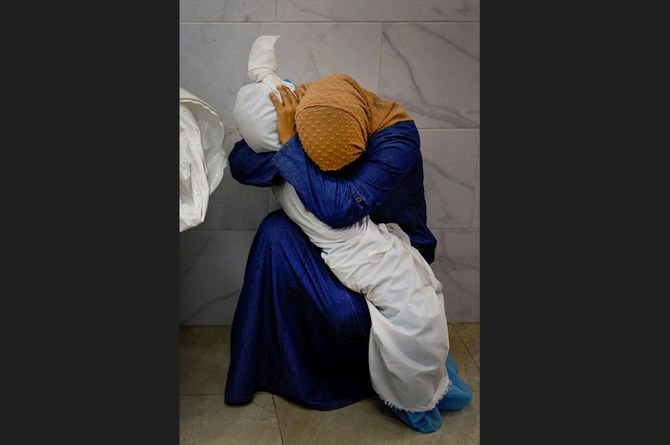
- Picture was taken on Oct. 17, at Nasser hospital in southern Gaza, where families searched for relatives killed during Isralei bombing
- ‘I hope photo makes world more conscious of the human impact of war, especially on children,’ Salem said
AMSTERDAM: Reuters photographer Mohammed Salem won the prestigious 2024 World Press Photo of the Year award on Thursday for his image of a Palestinian woman cradling the body of her five-year-old niece in the Gaza Strip.
The picture was taken on Oct. 17, 2023, at Nasser hospital in Khan Younis in southern Gaza, where families were searching for relatives killed during Israeli bombing of the Palestinian enclave.
Salem’s winning image portrays Inas Abu Maamar, 36, sobbing while holding Saly’s sheet-clad body in the hospital morgue.
“Mohammed received the news of his WPP award with humility, saying that this is not a photo to celebrate but that he appreciates its recognition and the opportunity to publish it to a wider audience,” Reuters’ Global Editor for Pictures and Video, Rickey Rogers, said at a ceremony in Amsterdam.
“He hopes with this award that the world will become even more conscious of the human impact of war, especially on children,” Rogers said, standing in front of the photo at the Nieuwe Kerk in the Dutch capital.
Announcing its annual awards, the Amsterdam-based World Press Photo Foundation said it was important to recognize the dangers facing journalists covering conflicts.
It said 99 journalists and media employees had been killed covering the war between Israel and Hamas since the Palestinian militant group attacked southern Israel on Oct. 7 and Israel responded by launching a military offensive in Gaza.
“The work of press and documentary photographers around the world is often done at high risk,” said Joumana El Zein Khoury, the organization’s executive director.
“This past year, the death toll in Gaza pushed the number of journalists killed to a near-record high. It is important to recognize the trauma they have experienced to show the world the humanitarian impact of the war.”
Salem, a Palestinian aged 39, has worked for Reuters since 2003. He also won an award in the 2010 World Press Photo competition.
The jury said Salem’s 2024 winning image was “composed with care and respect, offering at once a metaphorical and literal glimpse into unimaginable loss.”
“I felt the picture sums up the broader sense of what was happening in the Gaza Strip,” Salem said when the image was first published in November.
“People were confused, running from one place to another, anxious to know the fate of their loved ones, and this woman caught my eye as she was holding the body of the little girl and refused to let go.”
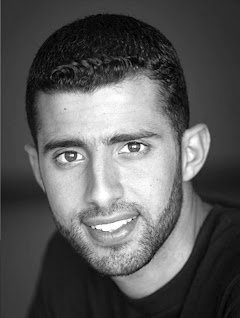
’PROFOUNDLY AFFECTING’
Salem’s wife had given birth to their child days before he took the shot.
The photograph is “profoundly affecting,” said jury member Fiona Shields, head of photography at Guardian News & Media.
The jury selected the winning photos from 61,062 entries by 3,851 photographers from 130 countries.
GEO photographer Lee-Ann Olwage of South Africa won the story of the year category with images documenting dementia in Madagascar.
The long-term projects category was won by Alejandro Cegarra of Venezuela for the series “The Two Walls” for The New York Times/Bloomberg.
Ukrainian photographer Julia Kochetova won the open format award with “War is Personal,” which documented the war in her country by weaving together pictures, poetry, audio and music in documentary style.
Arab League, OIC Islamic Broadcasting Union sign media protocol
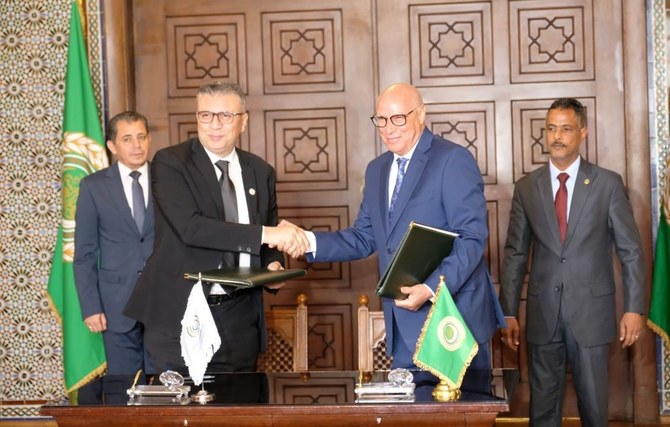
- Protocol encompasses various areas of collaboration, and focuses on training and capacity building in media and journalism
- Ambassador Ahmed Rashid Khattabi expressed optimism that the collaboration will contribute to promoting values of tolerance and moderation
CAIRO: The Arab League said that a media cooperation protocol will be signed between its Secretariat’s Media and Communication Sector and the OIC Islamic Broadcasting Union.
The Arab League added that “as part of efforts to cement ties between the General Secretariat of the League of Arab States and the Organization of Islamic Cooperation (OIC) Radio and Television Union, and in line with the General Secretariat’s commitment to fostering relations with regional and international organizations, a cooperation protocol will be signed between the General Secretariat’s Media and Communication Sector and the OIC Islamic Broadcasting Union.”
The protocol encompasses various areas of collaboration, and focuses on training and capacity building in media and journalism. It aims to bolster media exchange between the League of Arab States and the OIC, facilitate the sharing of expertise and knowledge in media practices, organize joint media initiatives, and conduct specialized training courses and workshops.
Ambassador Ahmed Rashid Khattabi, assistant secretary-general and head of the Media and Communication Sector, said that the protocol shows the commitment of both organizations to advancing professional cooperation.
He highlighted the importance of aligning with rapid technological advancements to meet the evolving needs of both entities.
Khattabi commended the significance of this protocol, stressing the vital role of intensified media cooperation between Arab and Islamic nations.
He expressed optimism that the collaboration will contribute to promoting values of tolerance and moderation, while rejecting extremism, and fostering deeper media and cultural exchanges.
The signing ceremony will take place at the headquarters of the General Secretariat of the League of Arab States in Cairo.
In response to the secretary-general’s directive, Khattabi will sign the cooperation protocol on behalf of the General Secretariat of the League of Arab States. Amr Ellissy, president of the OIC Radio and Television Union, will sign on behalf of the union.










